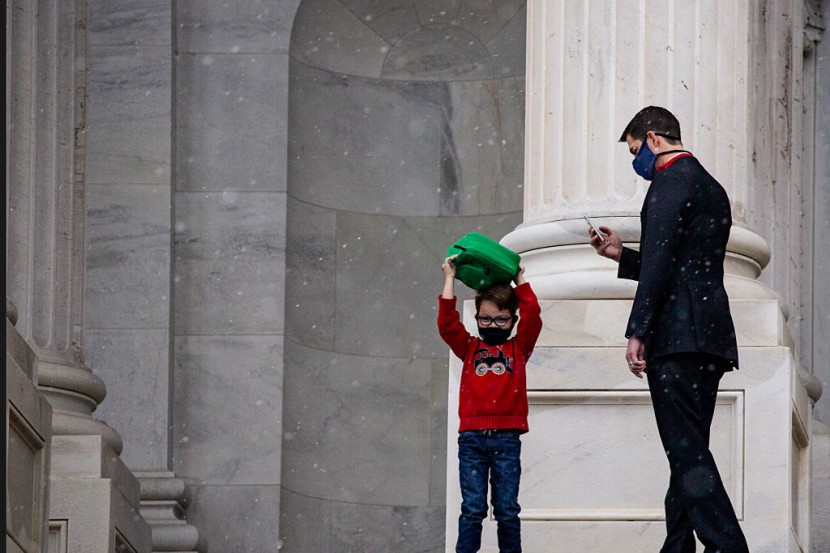
Children are reportedly becoming victims of isolation measures. Isolation measures, instigated as a response to the COVID-19 pandemic, are distressing children, according to the United Kingdom governmental watchdog Ofsted.
A set of reports published on Tuesday discovered repeated periods of self-isolation have adversely affected children and their education, particularly the most susceptible.
Regression in Basic Skills of Children
Ofsted pointed out that children failed to remember how to use a fork and knife and also returned to wearing nappies following the loss of mastery in skills amid the COVID-19 pandemic.
The watchdog detected regression in basic skills and learning among those most impacted by school closures and other limitations imposed due to the novel coronavirus.
A student named Mary described how it felt to return to their parents' home in March, which stretched into months. "It was like a return to homeschooling: no boys, no playdates, nowhere to go, except home and the liquor store," reported Financial Times.
The children's commissioner for the United Kingdom and leading psychiatrists have raised the alarm regarding young people's mental health amid the pandemic. Figures suggested a spike in reports of eating disorders, sleep problems, and self-harm.
According to freedom of information figures, prescriptions for sleeping pills for young people under the age of 18 rose 30% to 186,000 from March to June 2020 in contrast to two years ago.
Ofsted says older children currently lack "stamina" in reading and writing because of the coronavirus pandemic. It added children had fallen behind with their mathematics.
The news of the impact of the pandemic is based on over 900 visits to education and social care providers throughout the United Kingdom since September.
Also Read : Dr. Fauci to Skip Christmas with Family in 30 Years, Cautious of COVID-19 Surge During the Holidays
For one student named Shemar, 12, even with a computer, remote learning was not working out for him. The Remind app was another dilemma faced by Shemar as he downloaded it on his phone. However, when his mother lost or broke her phone, she borrowed her son's.
The National Society for the Prevention of Cruelty to Children (NSPCC)'s Childline service has been inundated with concerns from young people and children about COVID-19, and they are steadily mounting.
Childline has already counseled hundreds of them, and young people are discovering additional support in one another on their online message boards.
Inspectors discovered children's experiences were not necessarily determined by deprivation or entitlement. Instead, children who are managing well have good support structures surrounding them.
The majority of children went back to traditional schooling in September after the national lockdown witnessed schooling moving to online home learning.
Now teachers have had time to evaluate students as they "believe the learning lost over the first national lockdown was extensive," reported The Epoch Times.
Amanda Spielman, the chief inspector of Ofsted, stated children most vulnerable by schools being closed and other limitations were those in their early stages of education, and whose parents found it more difficult to work flexibly.
According to Spielman, "Leaders reported regression back into nappies among potty-trained children and others who had forgotten some basic skills they had mastered, such as eating with a knife and fork," reported Independent.








